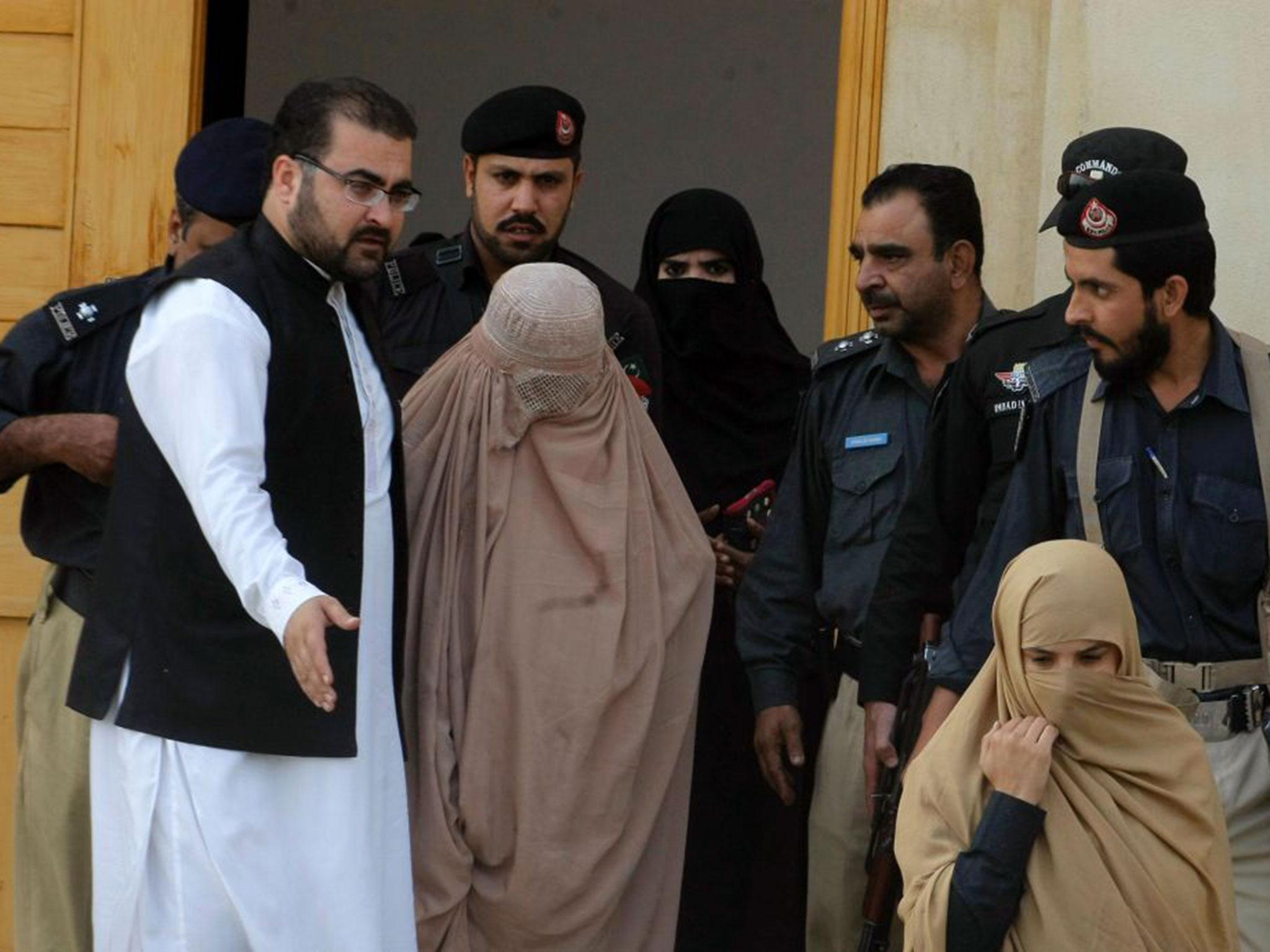'Afghan Girl' photographed for iconic National Geographic cover to be deported from Pakistan
Sharbat Gula admitted to using false documents

Your support helps us to tell the story
From reproductive rights to climate change to Big Tech, The Independent is on the ground when the story is developing. Whether it's investigating the financials of Elon Musk's pro-Trump PAC or producing our latest documentary, 'The A Word', which shines a light on the American women fighting for reproductive rights, we know how important it is to parse out the facts from the messaging.
At such a critical moment in US history, we need reporters on the ground. Your donation allows us to keep sending journalists to speak to both sides of the story.
The Independent is trusted by Americans across the entire political spectrum. And unlike many other quality news outlets, we choose not to lock Americans out of our reporting and analysis with paywalls. We believe quality journalism should be available to everyone, paid for by those who can afford it.
Your support makes all the difference.The Afghan woman whose portrait became one of the most well-known photographs of all time is to be deported from Pakistan after admitting to using false identity documents.
Sharbat Gula, who became known as the 'Afghan girl' after she was pictured on the cover of National Geographic, was arrested by the Pakistani authorities in October on suspicion of using fraudulent identity papers.
She bought a false Computerised National Identity Card in Peshawar, northern Pakistan in 2014, according to local media reports.
While there were fears she could face 15 years in prison, a court sentenced her to 15 days imprisonment and a 110,000 Pakistani rupee (£839) fine.
Ms Gula has already served 11 days in jail and the fine has already been paid.
Ms Gula suffers from Hepatitis C, and as a widow is the sole provider for her children, who have been cared for by Afghan consul officials. She told CNN she wants to return to her home town in Afghanistan, though she has not been in the country since 2003.
"We will take her to Afghanistan in an honourable way on Monday," Abdul Hameed Jalili, counsellor for refugees at the Afghan consulate in Peshawar, told AFP news agency.
The Pakistani measures reflect a tougher line on Afghan refugees in the country, of which there an estimated three million, some of whom have been present since the Soviet incursion into their home country in 1979.
In August, the government announced plans to repatriate all of them. More than 350,000 have returned since then, and the UN expects another 450,000 to do so by the end of the year.
There were mixed reactions to the news that Ms Gula would be deported.
"For decades, she was known as the world's most famous refugee and seen as a symbol of Pakistan's status as a generous host," said Champa Patel, Amnesty International's South Asia Director.
"Now, by sending her back to a country she hasn't seen in a generation and her children have never known, her plight has become emblematic of Pakistan's cruel treatment of Afghan refugees."
However, Steve McCurry, the photographer who took the famous image of Ms Gula, reacted more positively to the news.
"With utmost delight, I announce that Sharbat Gula is now free from the legal troubles she endured over the past couple of weeks,” he wrote on Instagram.
"She soon will also be free from an uncertain life of a refugee as she will be on her way back to her own country as soon as next Monday where she still is a beloved image and a national icon."
Mr McCurry said Ms Gula will be met by President Ashraf Ghani who will give her the keys to a new house and help her with resettlement.
The portrait of Ms Gula, taken when she was just 12, made her the face of Afghanistan's decades-long refugee crisis after it featured on the front cover of a 1985 issue of National Geographic magazine.
Following many attempts to find her, Ms Gula was tracked down by Mr McCurry to a remote Afghan village, 17 years after the original picture was taken.
She had never seen the photo which made her famous.
Join our commenting forum
Join thought-provoking conversations, follow other Independent readers and see their replies
Comments